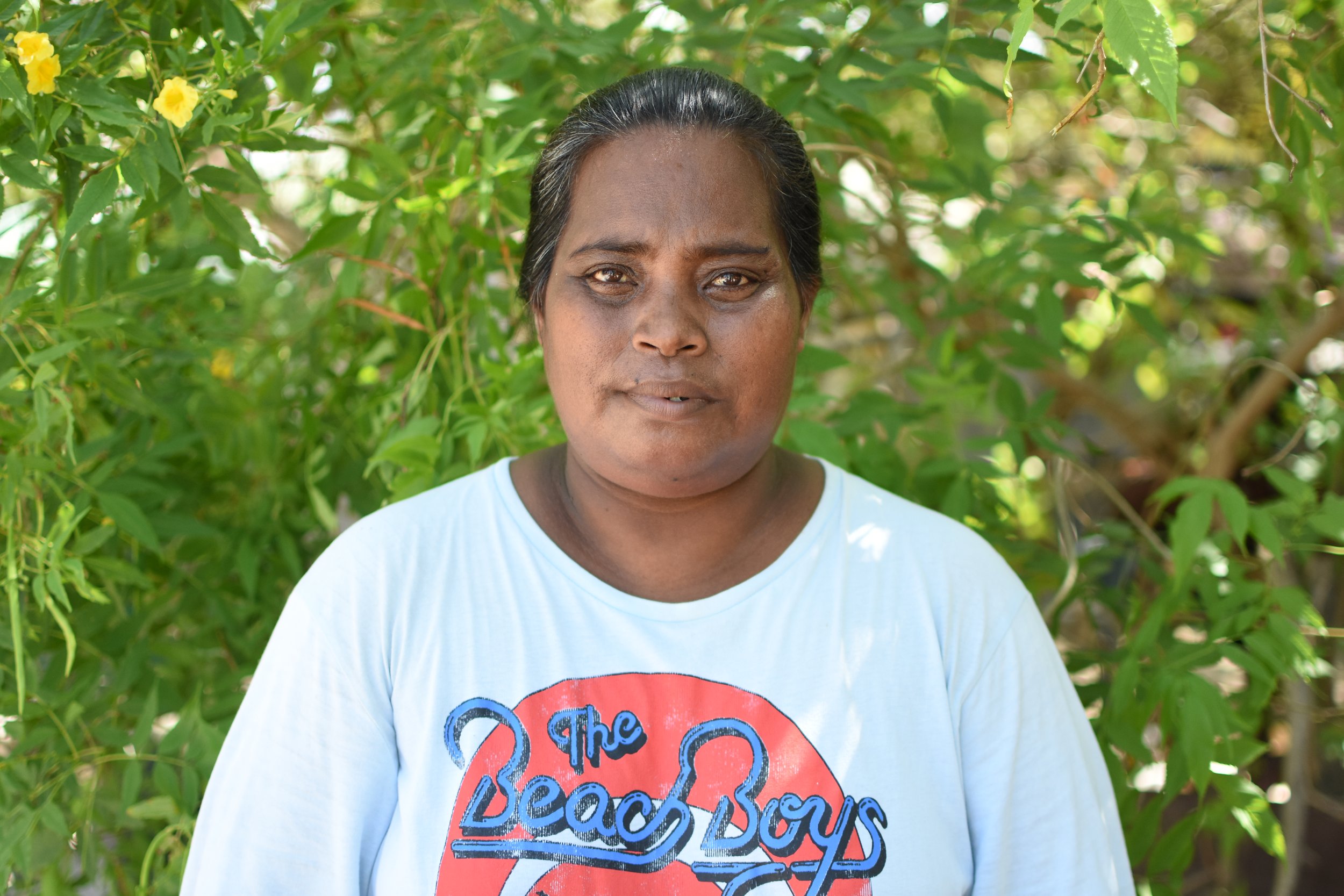A very responsible mother providing clean and safe drinking water for her children
Teeruru is a woman who has been living with her family on Betio for 42 years. She is married and had 6 children: two boys and four girls. She has been working as a cleaner at ministries from the age of 17 and when she was in her 20s, she got married and so she had to resign due to the heavy family commitments. Nowadays Teruru is selling takeaway food at schools to support her family financial daily needs.
Teeruru sees Water scarcity and well water contamination is one of the major issues here on Betio as it is densely populated. Teruru mentioned that most of all households here on Betio use three types of water, Public Utilities Board (PUB) water, well water and rainwater. She really rejects rainwater as to her it is not clean. In her family they use well water for washing dishes and bathing and PUB water for drinking and cooking. Teruru said,
“PUB water is not enough for us because when it runs, we can only get 5 buckets of 20 litres, but this is not enough to cater for the whole family drink for that day and the next day before the PUB water runs again, and the well water is contaminated and brackish. So, we have to manage our drinking water strictly daily.” She continued, “My priorities are my children’s health.”
In the past she never boiled her children’s drinking water because she was told that PUB water has been treated and safe to drink unboiled. So, she has been given her children unpurified water to drink. However, in 2020 ChildFund Kiribati staff did the water testing in her household, and they tested her drinking water. After 3 days the test result was positive which means that the water that she has given her children and the rest of her household members was bacterial. This could be related to the practice in what the house members and herself have taken to care for their water inside the water containers. They might have dipped a bacterial cup inside their water container. This has given Teeruru the greatest fear. However, after being aware of the results, she always boils her children’s drinking water every day, but she still in doubt whether the bacteria are killed or not.
In the year 2021, Teruru was participating again in ChildFund Kiribati water testing activity. She shares her feelings about the project being done on the water. “After three day’s my boiled water result came back and this time it was negative.” Teruru was so thrilled when she heard that the water that she has been giving her children is clean and she continued, “I’m happy to know about the negative result for my boiled water and this encourages me to maintain boiling my family’s drinking water and the safe practices in keeping the boiled water free from any more bacterium. I also want to share to my community members the importance of purifying drinking water and ways in keeping it safe.”
Therefore, Teeruru is so grateful for this kind of important activity that the Childfund Kiribati has done to all households here on Betio, which is water testing when she said, “As a responsible mother this kind of important activity is very productive to me especially in knowing the things that I must do to keep my children’s drinking water safe.”
ENCOURAGING CLEAN AND SAVE DRINKING WATER FOR CHILDREN
Last months, we are starting up our water testing activity again – because testing drinking water is a vital way we can keep children safe! This activity was involve eight staff members visiting Betio households, over four weeks, to test the water that families and children drink. The staff are using a simple scientific water testing kit from Aquagenx, which examines the quality of people’s water - right at their home! All private households in Betio will be participating in this activity.
The water testing activity looks at the point of consumption to detect a bacteria called Ecoli. ChildFund uses a tablet and app, called mWater app, to collate the scientific data, which we can then share with families.
In addition, this time ChildFund will also perform random testing on the Point of Collection, which means we will test some wells and pipe water to see how safe your water points are.



